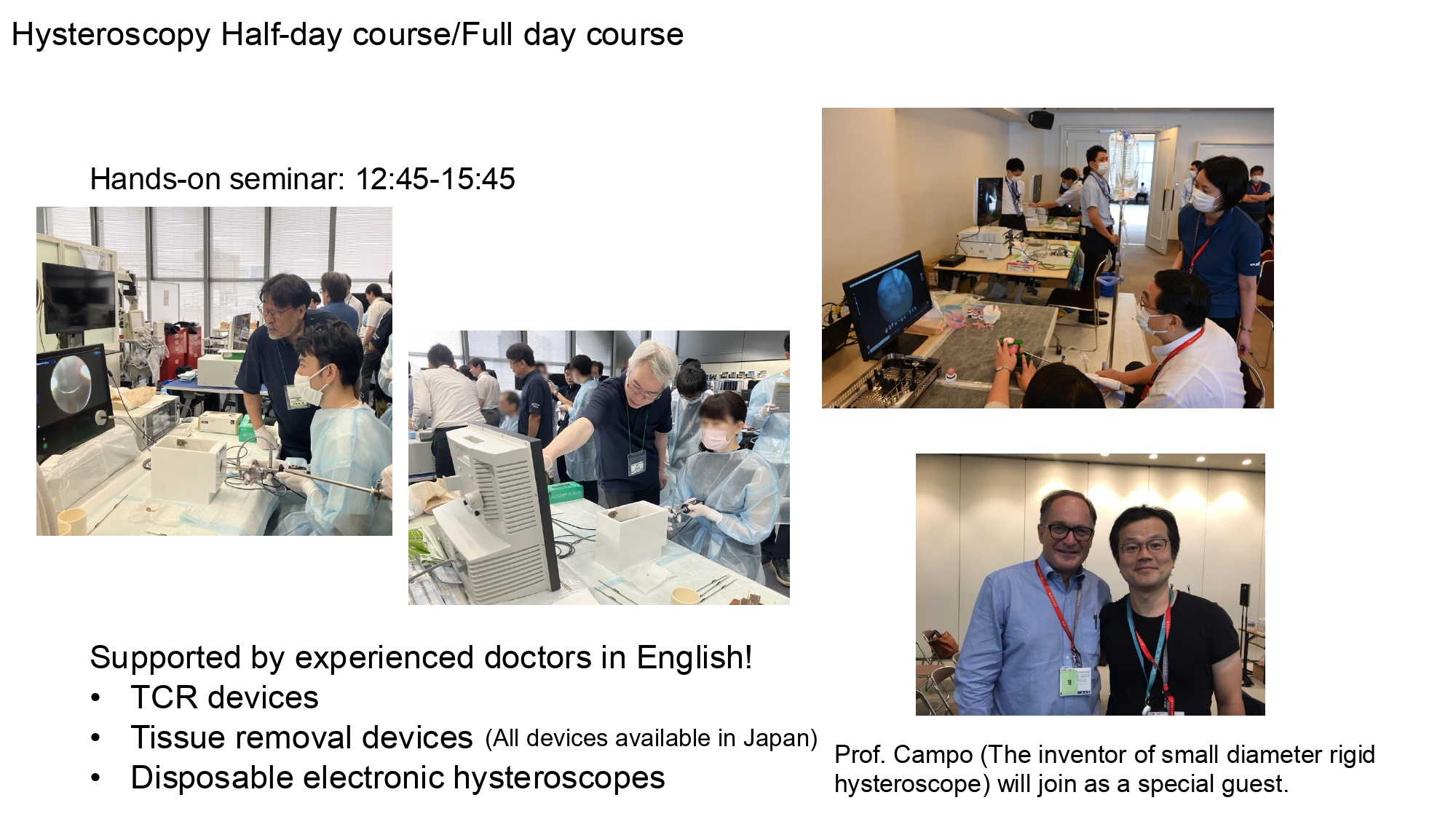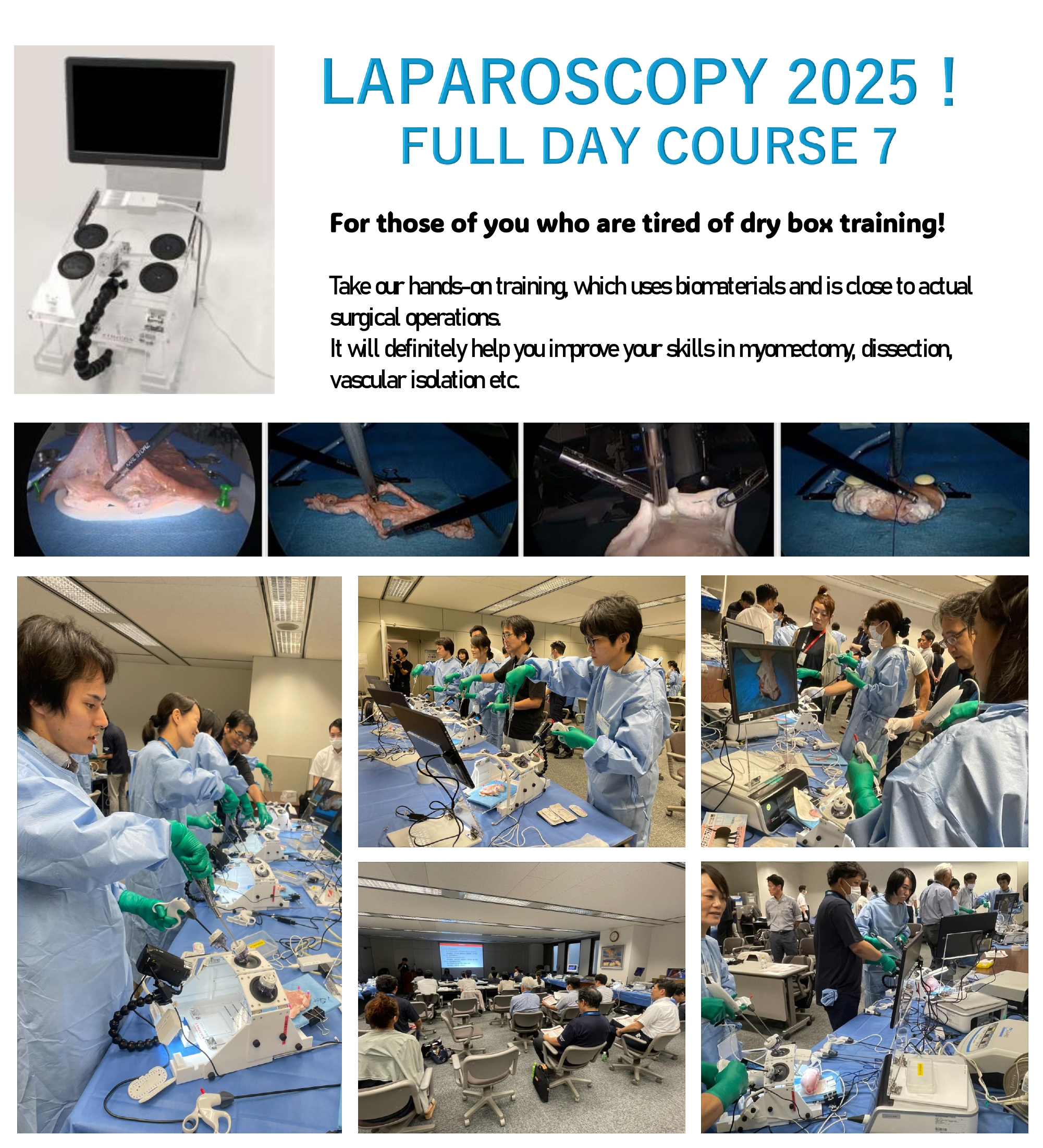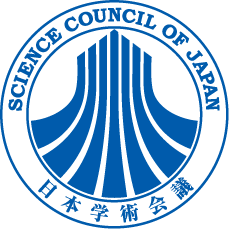Half-day Course 1
9:00-12:00 |
Andrology – Male Infertility |
Male fertility is far too often overlooked as an important part of the infertility evaluation, treatment as well as counselling. It is estimated that whereas 25 % of infertility is caused by clear female factors, 25% is caused by solely male factors, another 25% has a combined etiology and in about 25% of cases no clear cause for the inability to initiate pregnancy cannot be identified. These incidences may vary depending on the population. It is clear that the male component plays a significant role and this needs to be carefully evaluated and optimized in order to deliver high quality infertility treatment and excellent results.
IFFS is joining forces with the International Society of Andrology to deliver the latest knowledge in Male Infertility. Important topics are covered by internationally acclaimed faculty. Just as the appropriate evaluation of any infertility patient, the program begins with the modern work-up of the infertile man. Following this, important current areas of andrology are discussed. These consist of DNA fragmentation testing, varicocelectomy vs ICSI, testicular biopsy in non-azoospermic men, selecting the best sperm for ICSI.
Participants will have a comprehensive up-date on several important topics of andrology. The presentations cover the latest for experts of the field as well as those less familiar with andrology. The course also offers the opportunity to discuss these important issues and topics with the international expert faculty.
|
Half-day Course 2
9:00-12:00 |
The ART of Japanese-style MAR |
|
[Course description]
This course addresses the current status and basic and advanced treatment strategies, including add-ons, of assisted reproductive technology in Japan. We will approach the clinical advantages and disadvantages as well as the appropriate use of technologies.
[Target audience]
Clinicians, Clinical Embryologists, laboratory practitioners
[Expected learning outcomes]
By the end of the course, participants will have the latest knowledge on:
- Current status and characteristics of assisted reproductive technology in Japan
- Detailed protocols and clinical outcomes for minimal ovarian stimulation
- Basic and advanced strategies for advanced age patients
- Methodology and clinical efficiency of various ICSI techniques
- Clinical benefits and the appropriate use of time-lapse technology
- Recent improvements in cryopreservation technique and frozen embryo transfer
- Effects of endometrial preparations on pregnancy, maternal, and perinatal outcomes
|
Half-day Course 3
12:45-15:45 |
Genetics & Implantation |
|
Recent genetic advances provide precise and accurate analysis of preimplantation embryos. This has resulted in unexpected clinical conclusions not previously expected. Lethal maternal mutations may preclude early embryo development and prevent implantation. Not all euploid embryos implant in a given IVF cycle, but in a subsequent cycle, transfer of another euploid embryo has high likelihood of implantation that can result in a liveborn infant. Expanded carrier screening has revealed lethal mutations that lead to clinical pregnancy loss, and cell-free genetic analysis of embryo culture media is revolutionizing care. Moreover, the endometrial microbial environment is increasingly gaining attention in affecting pregnancy establishment and outcomes. In this pre-congress course attendees will learn, from leaders in the field, about contributions of embryo and parental genetics and the endometrial microbial environment to implantation failure and pregnancy loss, as well as advances in non-invasive genetic analysis of embryo ploidy status. Participants will be able to set expectations for patients, understand diagnostic approaches, and personalize therapeutic protocols for enhancing pregnancy success. This course is for reproductive medicine physicians, embryologists, nurses, laboratory and clinical geneticists, genetic counselors, basic researchers, translational researchers, and trainees in these categories.
|
Half-day Course 4
12:45-15:45 |
IVF LABORATORY |
The importance of Quality Management in the field of Assisted Conception is critical.
Clinics performing assisted reproductive technologies (ART) need to monitor and rigorously control all aspects of the treatment process to ensure consistent, high-quality care. We need to minimize errors and maximize the chances of successful pregnancy outcomes.
This PCC is aimed at all clinic staff (clinicians, nurses, embryologists and quality managers) to provide an overview of key elements of Quality Management for a fertility clinic and show you how your use of QM can continuously improve the quality of your services and patient care.
|
Full-day Course 1
9:00-15:45 |
PCOS – Best practice in PCOS |
| TBC |
Full-day Course 2
9:00-15:45 |
Embryo Transfer Simulation Course |
|
Procedure and Technique for Embryo Transfer in Humans
(Hands-on course using ASRM Embryo Transfer Simulator)
Facutly: ASRM: Jared Robins, MD; Michael A. Thomas, MD; Kim Thornton, MD
IFFS: TBD
Type: Intermediate-Advanced
Course Description
Reproductive health professionals receive training in various aspects of assisted reproductive technology and other procedures comprising infertility treatment. There is, however, a widespread gap in training in embryo transfer and there is a lack of a standardized protocol specific to embryo transfer. The objective of this course for ART professionals who perform the embryo transfer procedure is to learn the common best practices in embryo transfer and practice embryo transfer techniques using a virtual reality-based simulator. Learners will use modules of progressive difficulty to develop motor and cognitive skills for performing embryo transfer. The goal is for practitioners to improve their embryo transfer technique.
Target Audience
Reproductive health professionals who perform embryo transfer procedures.
Enrollment
AM Session: 20
PM Session: 20
Educational needs and expected outcomes
There currently is no standardized embryo transfer procedure or methods for training professionals entering the field. At the conclusion of this course, participants should be able to 1) describe the steps in the embryo transfer procedure in humans; 2) discuss best practices in embryo transfer in humans; and 3) implement the hands-on experience gained with the embryo transfer simulator into their practice.
|
Half-day Course 6 (AM)/Full-day Course 3 (PM)
Morning Session: 9:00-12:00
Afternoon session: 12:45-15:45 |
Hysteroscopy for infertility (Covidien/Medtronic Sponsored) |
|
This course will cover modern hysteroscopic surgery, which has been rapidly developing in recent years, and share the latest knowledge from the basics to applications. Topics will include the flexible video scope and rigid hysteroscope, which are often used for diagnostic purposes; the resectoscope, the standard device for submucosal myoma treatment; and the morcellator, a device lineup that has expanded in recent years. The PCC2 will be mainly led by experts from Japan, the host country of the IFFS, who has developed a training and certification system to promote awareness of office hysteroscopy. The lecture in the morning will also cover the training method for hysteroscopic surgeons. The afternoon hands-on course, which includes demonstrations of the latest models, is intended primarily for beginners. While the afternoon hands-on course can be taken as a full-day course with the morning lecture, the morning lecture can be taken as a half-day course.
Capacity:
- Lecture only (Morning session from 9:00-12:00) 16 pax
- Full-day with Hands-on (hands-on session from 12:45-15:45) 24 pax
Those who take hands-on sessions are required to take a lecture in the morning.
Lectures and Hands-on supported by Japan Society of Hysteroscopy and Sponsors
Part 1) Introduction lecture
Juichiro Saito
Osamu Hiraike Office hysteroscopy using tissue removal devices and its accreditation system
Part 2) Lectures on various topics
| Hirotaka Masuda |
Office hysteroscopy: Training for certified hysteroscopist |
| Tomoko Nakamura |
Hysteroscopic Removal of Retained Products of Conception |
| Kenbun Sone |
Update on Hysteroscopy and Uterine Cancer Break |
| Kimihiko Nakao |
Hysteroscopic Diagnosis and Surgical Management of Mullerian Abnormalities |
| Shun-ichiroTsuji |
The Cesarean Scar Defect: Indications, Technique and Outcomes for Hysteroscopic Surgical Intervention |
| Rudi Campo |
Education system of hysteroscopy by ESGE |

|
Half-day Course 7 (AM)/Full-day Course 4 (PM)
Morning Session: 9:00-12:00
Afternoon session: 12:45-15:45 |
Laparoscopy in 2025 (Johnson & Johnson Sponsored) |
|
Laparoscopy in 2025! will share the latest findings from experts on laparoscopic surgery to achieve both improvement of fertility and cure of disease at a high level. Topics will include endometriotic cysts, deep endometriosis, uterine fibroids, hydrosalpinx and so on. Laparoscopic surgery for these conditions includes important points for reproductive surgeons to keep in mind, such as preserving ovarian reserve, avoiding surgical complications, and minimizing the risk of uterine rupture during pregnancy. Following the lecture in the morning, a hands-on training course will be held in the afternoon, which will include dry lab/box training using disease models. While the hands-on training course is mainly for beginners, the morning lectures are also targeted at intermediate and advanced students, and can be taken as a half-day course.
Capacity:
- Lecture only (Morning session from 9:00-12:00) 100 pax
- Full-day with Hands-on (hands-on session from 12:45-15:45) 24 pax
Those who take hands-on sessions are required to take a lecture in the morning.

|











